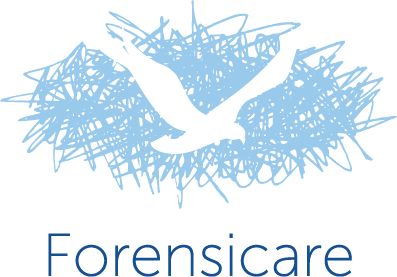One carer’s journey to forgiveness
Reconnecting with your loved ones is never easy. But mum Leanne* knew it was exactly what she had to do.
It had been years since she’d spoken to her daughter Sarah*—but in 2013, when health issues threatened her life, Leanne knew it was time to mend their bond.
“I had this need to reconnect with my daughter,” Leanne said.
“I had so many health issues and was in hospital close to death, where I’d experienced delusions of my own. It gave me a real insight into what Sarah had experienced with her own mental health.”
“And I’d missed her for many years. I knew very well that she would do a lot better with her mental health recovery if she was being supported by her family—and everyone deserves forgiveness, and a new start.”
You have to hold the hope—and never stop loving them
For Leanne, it was simple. And even when the journey to forgiveness was at times difficult, she believed that once you have a child, you can’t lose hope in them—and you can’t give up on them: no matter what.
It took two years for Leanne to come to terms with what had happened—the incident that caused Sarah to be sent to the Dame Phyllis Frost Centre, and later, Thomas Embling Hospital for secure psychological treatment. But it was Leanne’s own mother who gave her the life-changing advice that would set Sarah and Leanne on a course for reconciliation.
“My Mum said to just keep loving her,” Leanne said.
“Even if I couldn’t see her because it hurt too much—I just had to keep loving her. I used to get irritated by that, but I did it. I kept loving her, even when it was hard.”
Forgiveness takes courage
There’s no doubt: it’s a courageous act to forgive. But even through the pain, Leanne refused to give up on her daughter. And after two visits to Thomas Embling Hospital—which Sarah doesn’t remember—the pair finally got their chance to speak.
“I didn’t know what to expect,” Leanne admitted, when she saw her daughter for the very first time after years apart.
“I just grabbed her and consoled her. I lost it. I was bawling.”
“Afterwards, we went into mediation together. Both of us were apprehensive. We’d gone years without communication, and both had a heart full of pain and questions. But it was in mediation when I heard a lot of the things Sarah had experienced for the very first time. She told me she missed her family.”
“Later, I had a meeting with her doctors and spoke my mind. I wanted to be with her again—because I knew she needed me.”
Sarah’s struggle
Sarah was a really good kid, her mother recalls. She was prone to mood swings, and often felt like she didn’t fit in—but she was a good, kind person.
“She had dreams,” her mum said.
“She had wishes. She had hopes. She wanted to finish her horticulture apprenticeship, travel the world, have a family and achieve big things.”
But in her early 20s, Sarah’s mental health began to deteriorate, ending up in a public mental health ward, where Leanne says the struggles only began. Because Sarah was over 21, her treating team couldn’t tell Leanne anything—nor did the team listen to Leanne’s lived experience of Sarah’s troubles.
“It was a whole process,” Leanne said.
“The psych unit weren’t clear with us, and wouldn’t give us information. We were full of information to give them about our daughter, but they wouldn’t listen. And when it was time for her to come home, there wasn’t any support at all. They just gave her medication, and told her to have some time out.”
“Things just seemed to get out of control, and before we knew it, it happened.”
Sarah’s journey to mental health recovery
It’s been a long road for Sarah, with years and years of treatment. From psychological therapy, to occupational therapy, to group therapy, offending therapy, meditation, drugs and alcohol dual diagnosis therapy and group work, Sarah now understands her mental health—and her triggers and how to cope with them—better than ever, and lives with her long-term partner, Daniel.
“She and Daniel are now giving back to the community and supporting other people who also experience mental health issues,” Leanne said.
“I’m in awe about that. She works on various committees, including the Consumer Advisory Group at Forensicare, and even provides lived experience feedback on service development for others in Forensicare services.”
Coming together as a family
Forgiveness is a complex thing—but Sarah’s and her family are doing their best. Major strides were made last Christmas when the family even met up for a picnic in a park.
“We had to forgive her,” Leanne said.
“I had to forgive her so she could move forward, and I had to forgive her so we could move forward, too.”
The vital role of carers in mental health recovery
For consumer recovery, Leanne says collaboration with families and carers is key; both in keeping families informed, and listening—and valuing—their lived experience.
“It’s about being heard,” Leanne said.
“It’s about being listened to. It’s about being understood. Our needs are just as important as consumers—and being listened to, and having things explained properly, is so important.”
Sarah and Leanne’s relationship now
Leanne says it’s a gift to have been given a second chance with her daughter.
“I’m very grateful,” she said.
“Sarah contacts me every couple of days and asks how I’m doing, and she’ll tell me what she’s been doing. She goes to a lot of meetings now, which is great. And she’s given us a list of her early warning signs, too. If she’s bothered by something, I’ll ask her if she wants to have a chat—and she often says ‘thanks, Mum, I wouldn’t have looked at it like that’.”
Sarah has even reconnected with her nieces and nephews, which has done wonders for her mental health recovery.
It can happen to anyone
Being a carer to someone who lives with a serious mental illness has changed Leanne’s perspective on the world—particularly when connecting with parents of other people in similar situations.
“I remember going to a carer’s group and seeing other parents that have been supporting their children through things like this for over 20 years—and they hadn’t given up on their children; so I knew I couldn’t, either.”
“It can happen to anyone. You could be a good and supportive parent, but children can still become unwell—and it’s up to us to support and love them.”
“It’s been a big, crazy, emotional journey for us both, but you can’t give up. You can’t give up on your children. And everyone deserves a second chance.”
And to Sarah, her mum’s support means the absolute world.
“Miracles do happen,” Sarah said, after they’d reconnected.
“Sometimes, you just have to make them happen for yourself—whether it be through forgiveness, or being brave enough to move forward.”
Need support? Don’t be afraid to reach out.
Carer’s Victoria
Tandem
Lifeline: 13 11 14
Always remember: you are not alone.
*Please note: we have changed the names in this story to ensure privacy for the family.*





